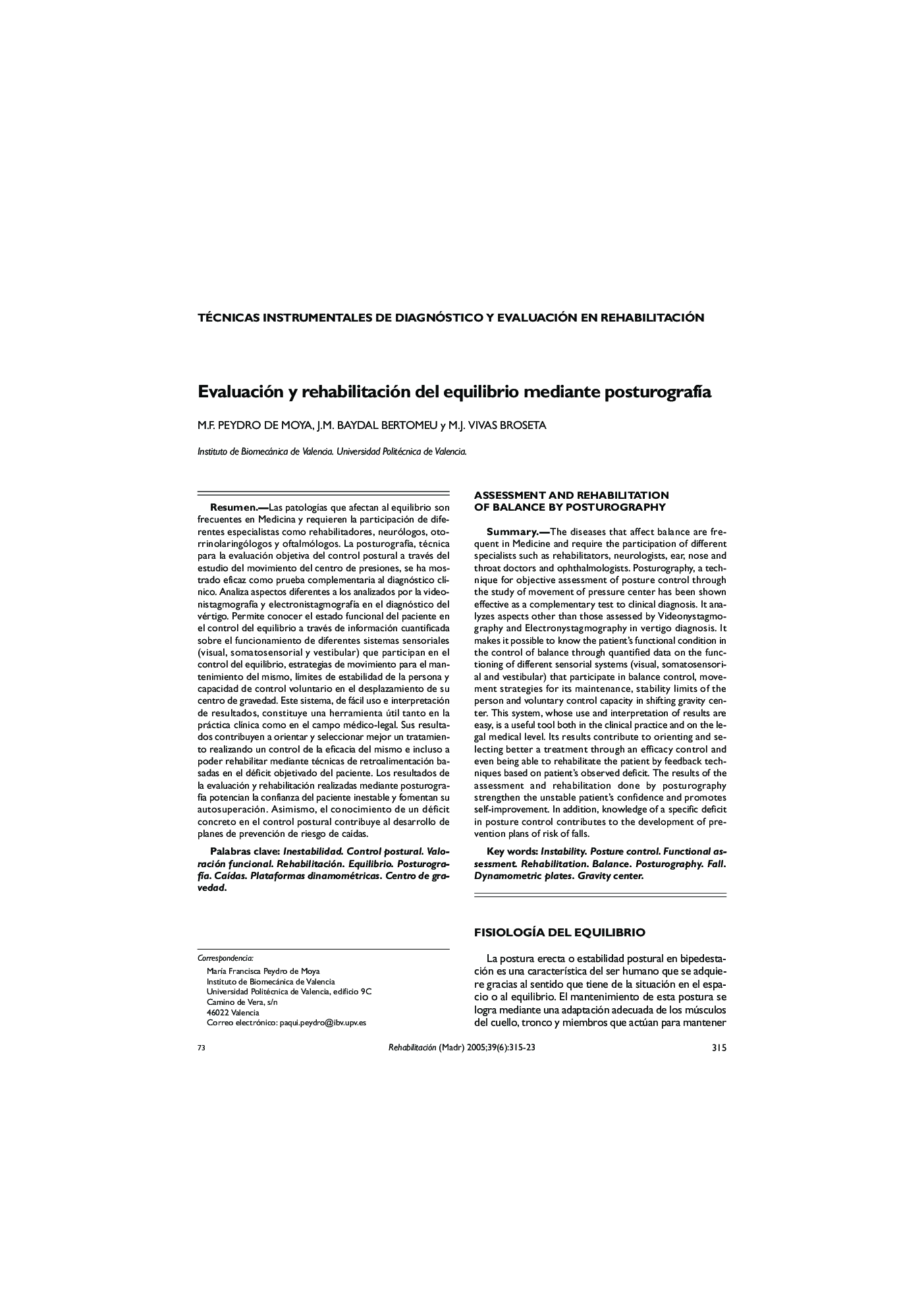| Article ID | Journal | Published Year | Pages | File Type |
|---|---|---|---|---|
| 9357430 | Rehabilitación | 2005 | 9 Pages |
Abstract
The diseases that affect balance are frequent in Medicine and require the participation of different specialists such as rehabilitators, neurologists, ear, nose and throat doctors and ophthalmologists. Posturography, a technique for objective assessment of posture control through the study of movement of pressure center has been shown effective as a complementary test to clinical diagnosis. It analyzes aspects other than those assessed by Videonystagmography and Electronystagmography in vertigo diagnosis. It makes it possible to know the patient's functional condition in the control of balance through quantified data on the functioning of different sensorial systems (visual, somatosensorial and vestibular) that participate in balance control, movement strategies for its maintenance, stability limits of the person and voluntary control capacity in shifting gravity center. This system, whose use and interpretation of results are easy, is a useful tool both in the clinical practice and on the legal medical level. Its results contribute to orienting and selecting better a treatment through an efficacy control and even being able to rehabilitate the patient by feedback techniques based on patient's observed deficit. The results of the assessment and rehabilitation done by posturography strengthen the unstable patient's confidence and promotes self-improvement. In addition, knowledge of a specific deficit in posture control contributes to the development of prevention plans of risk of falls.
Keywords
Related Topics
Health Sciences
Medicine and Dentistry
Orthopedics, Sports Medicine and Rehabilitation
Authors
M.F. Peydro de Moya, J.M. Baydal Bertomeu, M.J. Vivas Broseta,
